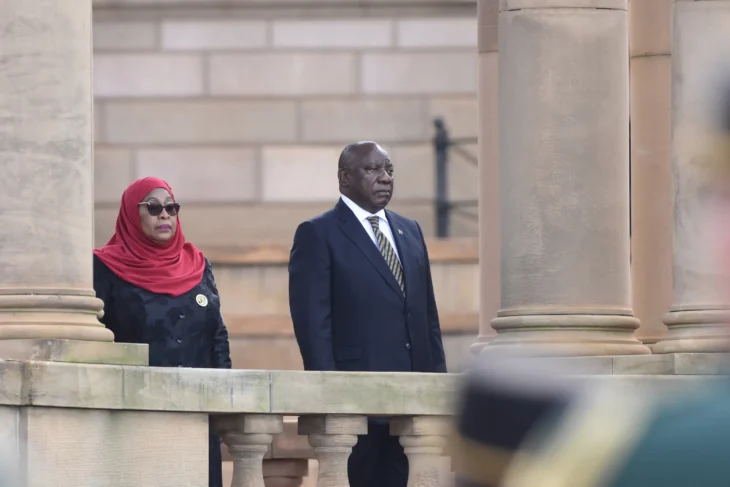
Most economists see structural transformation as one of the major routes to Africa’s sustainable development…African leaders have their work reduce out to make the continental free trade area a success. Wikimedia Commons.With this purpose in mind, economists and policymakers need to comprehend what determines structural transformation. They have flagged factors like demand for goods and services, exchange policies, economic development, institutional first-class and monetary integration.But researchers haven’t intently examined the way economic integration via alternate and finance influences structural transformation.
I, therefore, set out to study African countries’ integration with the rest of the world and the impact of that integration on their structural transformation. This study provides clean proof about whether or not integration is good for Africa. It additionally reveals the right degrees of integration fundamental to increase structural transformation.Trade and monetary integration are both about countries exporting to and importing from each other. The two are often referred to as financial integration. Opening countrywide borders to change has a quantity of possible advantages which can promote development. For example it creates comparative advantage, get admission to external finance and possibilities for risk sharing. It also enables technology transfer. Local corporations serving larger overseas and home companies can acquire expertise and capabilities and switch them to the rest of the economy.

All these benefits are imperative for structural transformation. But immoderate openness and integration may additionally additionally come at a cost, mostly from distortions around trade policy. For instance, if positive neighborhood industries have been protected, local firms might also no longer be suit adequate to compete with overseas counterparts. Opening these industries to competition can also damage them.Balancing the workable benefits and dangers of integration is a pressing policy trouble now that African countries have signed the African Continental Free Trade Area agreement, which goals to foster integration.Policymakers want to recognize whether or not there is an ideal level of trade and financial integration that will alternate economies in the preferred ways.
The study: findings and implications
With this background, I examined the results of economic integration on structural transformation in 32 African international locations from 1985 to 2015. The time length and choice of international locations were primarily based on data availability.

I created an index of structural transformation that comprises changes in sectoral value addition and demographic characteristics. The index degrees between 0 (low transformation) and 1 (high transformation). I found that structural transformation on the continent was once low, with an average fee of 0.419, but different throughout countries.The majority of the countries’ indices had been lower, suggesting that structural transformation is solely just beginning.I additionally observed that African nations were less integrated in phrases of alternate and finance than different developing economies.
I measured change integration as the ratio of countries’ imports and exports to GDP. This indicates the degree of openness. I determined that the superior level for alternate integration was 73.29% of GDP. By this I suggest the stage of trade integration that produces an accelerated impact on structural transformation.The facts counseled that change integration encourages the reallocation of assets to extra productive sectors.To measure monetary integration, I used the ratio of countries’ whole foreign liabilities and property to GDP. This suggests the diploma of restrict of capital flows. The superior stage for economic integration was 137.5% of GDP. Ten African countries have been above these stages and 22 have been below.The 10 countries that are above this financial integration threshold are Botswana, Congo Republic, Côte d’Ivoire, The Gambia, Guinea Bissau, Mauritania, Mauritius, Seychelles, Sudan and Togo. Similarly, the 10 countries above the alternate integration threshold are Botswana, Congo Republic, Côte d’Ivoire, Gabon, Mauritania, Mauritius, Seychelles, Eswatini (formerly Swaziland), Togo and Tunisia.
I determined that structural transformation will increase more in international locations that are under these levels of integration in contrast to nations that are above the thresholds. Integration increases structural transformation, but too much integration slows that process, producing undesired effects.The fantastic effect of integration on transformation takes place via improved efficiency, comparative advantage, exterior finance and risk diversification. Countries can have these elements notwithstanding being less integrated and operating beneath the thresholds. The advantages of integration come from effectivity of integration alternatively than unbridled integration.A key implication is that effectivity in each trade and monetary integration is vital to using structural transformation in Africa. This explains the urgent need for African nations to concurrently deepen trade and financial integration. Economies that embark on monetary integration alongside both strains can count on to have expanded transformation for sustainable development.
The function of the free trade area
The learn about suggests that Africa has possibilities to integrate further. The African free exchange place has the doable to defragment the continent and deliver its economies into the international economy.The free alternate place ambitions to gradually cast off tariffs and non-tariff boundaries to exchange in goods and to liberalise change in services. It will establish a single continental market for items and services: a better and extra aggressive market.A higher free trade place will now not solely boost intra-regional trade, it will also hasten the development of regional supply chains. These have pushed structural transformation in other regions, for example Asia. It is additionally necessary for coverage to address the non-tariff limitations to trade. Among these are bad logistics and infrastructure (such as roads, rail, ports, power and digital connectivity).Countries be focusing on getting rid of such bottlenecks. The African Union, United Nations Economic Commission for Africa and the African Development Bank need to get the free exchange region working as soon as possible.













